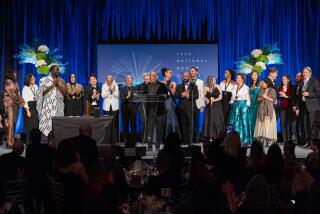Malala wins wide acclaim for peace work, but not the Nobel Prize
If the Nobel Peace Prize were awarded to the most inspiring triumph of reason over brutality, 16-year-old Malala Yousafzai would be booking a flight to Oslo.
The Pakistani schoolgirl’s activism for education and equality in defiance of Taliban bullets made her a favorite for Friday’s prestigious award. That the Nobel committee decided instead to recognize the work of enforcers of the 1997 Chemical Weapons Convention disappointed legions of Malala admirers worldwide but failed to shake their belief that she was the most deserving.
Friday was the second annual International Day of the Girl, proclaimed by the United Nations last year to celebrate the very causes championed by Malala. Many human rights groups and political analysts considered the day a fitting occasion to honor her contribution.
Malala has been speaking out against Taliban repression since the Islamist militants took control of her hometown in Pakistan’s Swat Valley in 2009, when she was 11. She began that year writing a blog for the BBC’s Urdu service, chronicling the Taliban’s abuses and discrimination against girls and women.
The BBC was one of many international media organizations to profile Malala and her work on the eve of the Nobel announcement, in the apparent expectation that she would be this year’s laureate.
Malala became a symbol of resistance to the Taliban, drawing both censure and encouragement in her conservative homeland. The militants’ threats to retaliate for what they saw as her defamation of Islam were acted on a year ago, on Oct. 9, 2012, when gunmen boarded the minibus she was taking to school and, after asking for Malala, shot her in the head.
Malala and her family were airlifted to Britain and she spent months in a Birmingham hospital being treated for wounds that doctors initially feared would prove fatal.
She emerged in July at a youth gathering at the United Nations in New York, full of renewed defiance and unfathomable forgiveness for the extremists who tried to kill her.
Among a dizzying number of television appearances and interviews this week, Malala was a guest Tuesday on “The Daily Show” and left host and comedian Jon Stewart speechless with her account of how she would resist an urge to retaliate against her Taliban attackers. Her first instinct, if confronted again, she said, would be to hit the militant with her shoe.
“But if you hit a Talib with a shoe then there will be no difference between you and the Talib,” she observed, stirring thunderous applause from the studio audience and uncharacteristic silence from Stewart.
Malala’s activism has provoked resentment among many in her conservative homeland, and a Taliban spokesman this week renewed threats to attack her if given the chance.
On Friday, Taliban spokesman Shahidullah Shahid congratulated the Nobel committee on “not selecting this immature girl for this famous award,” NBC News reported.
But others in Pakistan reacted with declarations of respect and admiration, and professions of confidence that her contributions to peace and freedom will one day capture the ultimate prize. She has already won several prestigious awards, including the European Union’s Sakharov Prize, bestowed Thursday.
“We are proud of this daughter of Pakistan who had to suffer trauma at such a young age, almost losing her life, simply because she stood for the right of girls to education,” opposition Pakistani politician and former cricket star Imran Khan said after the Nobel announcement.
Christiane Amanpour, promoting a Sunday broadcast on CNN of her interview with “The Bravest Girl in the World,” predicted after the Nobel went to the Organization for the Prohibition of Chemical Weapons that Malala would retain her place in the public spotlight.
“It’s a hard road for women in Pakistan now, but she has such grace and determination that if she survives I think she’ll have a very bright future,” the veteran journalist said, disclosing that Malala hopes to go into politics and change her country from within.
Other commentators pointed out that the chemical weapons enforcers would have been more deserving of the peace prize next year, if and when they actually rid Syria of its poison gases and nerve agents.
“I don’t see how they compete with the bravery of Malala and her family, who took such extraordinary risks to press for a cause -- the education and therefore empowerment of that 50 percent of the world’s population who are women,” Bloomberg editorial board member Marc Champion wrote in a commentary.
Malala herself reacted to the award with winning grace:
“Congratulations @OPCW on winning the #Nobelpeaceprize and your wonderful work for humanity,” she said via the Malala Fund’s Twitter account. “Honoured to have been nominated.”
ALSO:Kerry makes urgent trip to Kabul as security pact deadline looms
Ex-Formula One test driver Maria de Villota found dead in hotel room
One week later, ‘Death to U.S.A.’ chant back in vogue in Iran capital
Twitter: @cjwilliamslat
More to Read
Sign up for Essential California
The most important California stories and recommendations in your inbox every morning.
You may occasionally receive promotional content from the Los Angeles Times.











